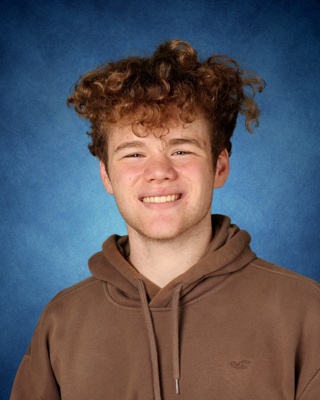During the week of April 17, Liberty’s Robotics team competed at the FIRST Robotics World Championship. The team placed 71st out of the 74 teams in their division, but junior and team president Akash Krishna won the Dean’s List Award, an award given to only ten people in the entire world.
“It felt great to win the medal, especially since it was a pretty exclusive accomplishment,” Krishna said.
This accomplishment-and the competition as a whole-came as a culmination of a series of events along with months of preparation.
“We were really happy with our performance at Districts,” Krishna said. “We were really looking forward to Worlds.”
Even the members that didn’t go, such as sophomore Shreyas Kolwalkar, joined in on the preparations.
“I’m on the software subteam, so I helped with coding a lot of the robot in preparation for the competition season,” Kolwalkar said.
The robot, lovingly named Atlas by the seniors, according to Kolwalkar, is a shooter robot.
“The robot takes the notes–game elements from the robotics competition game–and shoots them into various different game elements,” Kolwalkar said.
Before they could compete, however, the team had to arrive and settle into their new environment.
“We spent the first day at the hotel, but the next day was our load-in day,” junior Kean Mathis, head of the media, said.
The load-in day is when the team goes to their venue and sets up their pit, which their robot competes in. The pit has support poles and contains the supplies that the team uses. With this pit, they do practice matches before the actual competition.
“It’s really useful to have practice matches, since they help us ensure that our robot works and can compete,” Krishna said.
Most of the competition, according to Mathis, was comprised mainly of these practice matches.
“The main days of the competition were just us doing practice matches; we only competed in the qualification round for our division,” Mathis said. “We didn’t make it any further than that.”
Because they didn’t make it to the finals, Krishna feels that the team has a lot to improve on.
“We didn’t put enough of an emphasis on training, so when the time to compete came, people were basically teaching themselves,” Krishna said. “Our time management could have also been improved, since we were rushing to get things done as the competition approached.”



